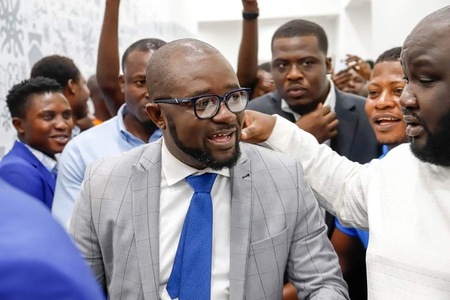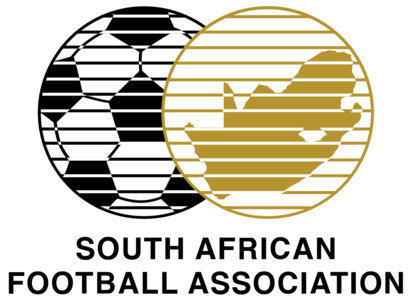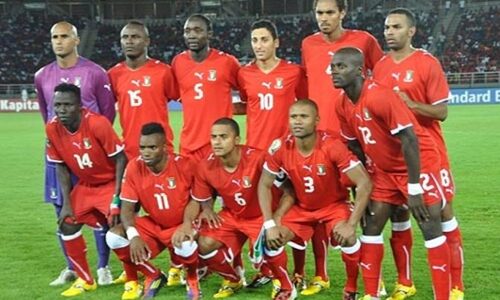A couple of weeks ago I was speaking with a man who worked for over a five years in a prominent African youth academy, and we covered many topics in African football. In discussing the related success stories, the conversation naturally turned to Nigeria’s success in the 1994 World Cup and gold medal in the 1996 Olympics. I expected to talk about the great players of the side and contributors on the field, but he emphasized the organization off the field as a significant factor in Nigeria’s success.
This emphasis on Nigeria’s organization surprised me. A main theme in African football is how organizers and leaders hold their countries back from success rather than contribute to it. However, in hindsight, Nigeria’s organization did in fact contribute substantially. The national league was well organized in the 1980’s and in the process of producing the stars that would bring Nigeria into the world spotlight. The successes of 1994 and 1996 were the results of an extended period of successful organization and off-the-field work.
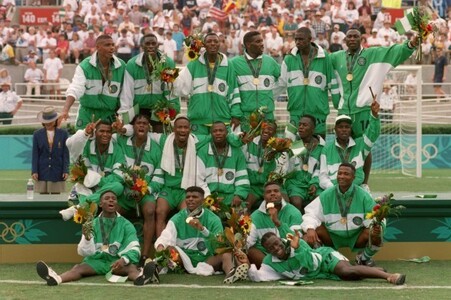
Nigeria’s 1996 gold medal winning side
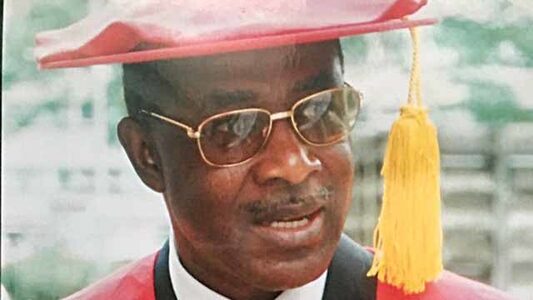
Emeka Omeruah: Nigeria Football Federation President (1993-1997). Oversaw Nigeria’s greatest footballing successes and was a prominent advocate against corruption
For the majority of African nations where football is the unquestioned number one sport, football associations have incredible powers that essentially make them political entities. The president of these associations live up to their title, and are unafraid to wield their power. Arnold Pannenborg, a cultural anthropologist who did PhD research in Ghana and Cameroon on money, power, and politics in African football, described the power of football association presidents:
“One of the most important things that I noticed during my research is that positions in football are highly prestigious. An FA chairman prefers to call himself ‘president’ and his presence alone commands the utmost respect. Whoever deals with an FA or a club will learn that no decision can be taken without the president himself. If you want to establish a working relationship with an organization in football, it is vital to know who is in charge. You have to be very careful not to offend anybody.”
In Ghana, a scandal two years ago led to Kurt Okraku becoming the new president of the Ghana Football Association. However, Okraku’s position is under threat because a candidate, Wilfred Osei Palmer, was disqualified from that election and is taking his case to the Court of Arbitration for Sport. A former representative for club sides in Ghanaian football summed up the situation, “Palmer was not treated well. Kurt didn’t manage it well; there was a lot of ego at play on the part of the GFA…If things were handled well by this current FA and the aggrieved parties were given a hearing and brought on board, we would not have to contend with CAS.” Coming off the 2018 scandal and complications in figuring out when to bring back domestic football to Ghana, a power struggle like this can have a negative impact for an extended period of time.
Many pundits predicted Nigeria to build from their 1994 and 1996 successes to perhaps compete to win a World Cup sooner rather than later. However, like in Ghana’s case, organizational struggles have negatively impacted domestic football, and Nigeria’s league, the NPFL, is a shell of its former self. In the cases of Nigeria and Ghana, the federation presidents are former or current chairmen of top division clubs, and any conflict or rivalry between clubs is amplified further when a member of one side is in the position of power.
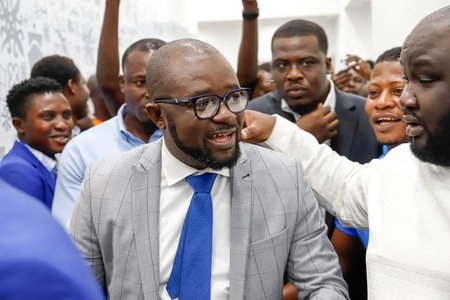
Kurt Okraku: President of the Ghana Football Association
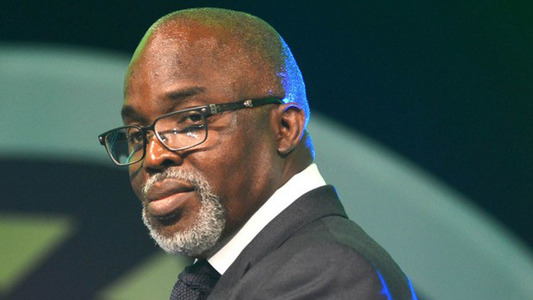
Amaju Pinnick: Current President of the Nigeria Football Federation
When speaking with Africans about the footballing scenes in their respective countries, the number one theme of emphasis is off-the-field organization getting in the way of progress on the field. Because of this awareness, football associations are being held to account more and more by fans and the media. It is easy to find articles that support and criticize federation presidents. The talent in African football will continue to slowly progress whether the organization is sound or not. However, as Nigeria’s case illustrates, success off the field is proven to be the reason for trophies and long-lasting legacies.



